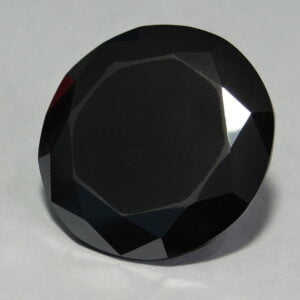It’s not often in Geology that you have an opportunity to personally link an item to a historical figure but thanks to Freeman’s auction house we can tie a beautiful piece of jade to one of the later Qing Dynasty emperors. Little did the Qianlong Emperor (born Aisin Gioro Hongli) and sixth emperor of the last Chinese imperial dynasty suspect one of his personal items would appear in an internet auction catalogue, but life is stranger than fiction. The item for sale is a gorgeous pale and luminous high relief carved jade seal in a celadon white tone. The carving depicts three qilong (unicorns) which are symbols of good luck among carved scrolling clouds which likely refers to the Chinese saying “Canlong jiaozi”, which may be translated as “The Eastern [blue] dragon teaching his son[s]”, probably referring to the personal situation of the emperor.
Jade is a traditional carving material in China. In ancient days in China jade was symbolized the inner beauty within humans. This certainly isn’t the first jade imperial seal. The first Chinese emperor, Qin Shi Huang, created the first Imperial seal, in 221 B.C., also of Jade. By the time of the Ming dynasty (starting in 1368) the first imperial seal was lost. Until the Ming dynasty seals were typically reserved for Imperial use. A Chinese seal (印章 yìnzhāng) is a device used to mark important documents, pieces of art, contracts, or any other item that requires a signature – in effect similar to a signet ring or in modern times an ink signature stamp. These seals were usually carven stone, but sometimes were made of wood, bamboo, bone, or ceramic. They would be dipped in either red ink or cinnabar paste.
View a video of the seal below or visit the Freeman auction site to learn more about the seal.
We may not have any imperial seals, but we have plenty of jade for sale. Check out our selection of Jade. If you don’t see something that tickles your fancy, contact us as we only post only a portion of our inventory online.
The Qianlong Emperor in court dress. Top image by Giuseppe Castiglione – Palace Museum, Beijing, Public Domain, https://commons.wikimedia.org/w/index.php?curid=15172620
Written by
MichaelG
You may also interested in:

What Exactly do I have - Dolomite, Limestone or Dolostone?
The other night, I was discussing Eddie Murphy with a friend. Murphy, whose career has been up and down over the past 10 years had a bit of a comeback
What Kind Of Minerals and Crystals Can Be Found In Ohio?
Calcite and celestite crystals from Ohio If you live in Ohio and want to get rich finding Emeralds then forget it. Your best bet for that is to move to
Ever Popular Ever Beautiful Rose Quartz
Of all the variety of minerals and crystals, perhaps the most beloved and widely collected is quartz. Named from the old Saxon word querklufterz meaning ‘cross vein ore’, it is
A Bridge to Washington made of Mineral and Perseverence
The river is just about a mile wide at this point. Mud colored waves roll along gently, interrupted occasionally by pleasure craft or a mock riverboat filled with sightseers. I
The Uncertain Future of Afghanistan's Mineral Wealth
Poor Afghanistan. It is the country that never seems to catch a break. Remote, poor, land-locked, and yet highly strategic because of its position as the gateway to India and
Organic Looking Moss Agate Use in Art
Moss agate is an un-banded (and therefore not a true) agate. It is a chalcedony with dendritic inclusions of other, typically green, minerals forming filaments and patterns that are suggestive
The Black Diamond, an Engima Weighing 555.55 Carats
A gigantic black diamond, certified by Guiness as the world’s largest cut diamond is for sale through Sotheby’s auctions. Weighing in at a whopping 555.55 carats, the carbonado piece has
Simply Brilliant - An Exceptional Collection of Fine Jewelry with Outstanding Stones and Crystals
The Cincinnati Art Museum has a new exhibit running through February 6th titled “Simply Brilliant: Artist-Jewelers of the 1960s and 1970s”. This exhibition of approximately 120 explores the international renaissance
An Ancient Malachite Art Object
Artisans have used malachite as material for creating art since ancient times. Today we have an exceptional example of chinese art incorporating malachite. A pommel (likely of a sword) inlaid